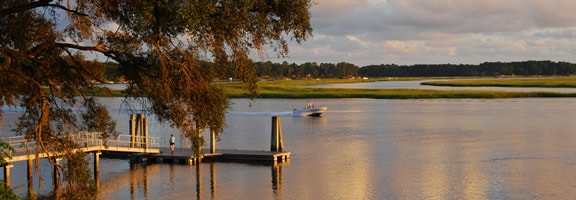With the presidential election quickly approaching it is clear that the outcome will have a major impact on the national land market. Over the last twelve months this market has improved considerably in South Carolina from the previous two years and the potential for a full-on recovery mode is in the air. However, the majority of individuals involved with the land market, not only in this area but most likely nationwide, has the same opinion on its future with regards to the presidential election – it could go either way. The local chatter is heavily swayed towards the notion that a change in the White House will undoubtedly propel the land market up the recovery slope and lead to more transactions, higher land values, and overall economic prosperity. The flip side of this scenario is that another four years with the current president could lead to another recession and even lower land values than current cellar prices. As a land broker this scenario presents quite a challenge in terms of advising a client, whether buying or selling, on how to move forward. In order to overcome this challenge the appropriate due diligence requires a closer look at current events surrounding the region’s economy and job market as opposed to simply relying on public opinion concerning the upcoming election.
In South Carolina, things are looking very good in the automotive manufacturing sector. Employment in this industry “is up more than 11.3% from a year ago and nearing pre-recession levels seen in 2007, according to data released this month by the U.S. Bureau of Labor Statistics.” Construction is currently underway at the BMW plant in Spartanburg County on a $900 million expansion project that will add 1,140,000 square feet to the facility and bring in 1,400 new jobs by 2014. Michelin North America and Bosch Rexroth are adding $830 million in investments and 660 jobs to these figures. Overall, “[t]he sector has added 3,200 jobs over the past 12 months and as of July employed 31,600 people, bureau data shows.”
Another boost to South Carolina’s economy is the new Boeing Co. Facility in North Charleston, SC. State officials anticipate that Boeing will follow in BMW’s footsteps by luring suppliers to the state. Boeing reported “spending $745 million with 347 South Carolina suppliers and vendors last year, as opposed to $95 million with 81 suppliers and vendors in 2010. According to the company, that investment supports 25,000 jobs beyond the more than 6,000-plus employees at Boeing’s factories in North Charleston.” Since BMW came to Spartanburg County in 1992, forty suppliers have followed the automotive giant and do business across eleven counties throughout the state. These suppliers have invested $2.1 billion into South Carolina’s economy on top of the $4.2 billion that BWM has invested since 1992. BMW and its forty suppliers currently account for 27,000 jobs and $1.2 billion in annual wages and state leaders anticipate that Boeing’s presence will have a similar impact on the state’s economy in the near future.
One last gold star for South Carolina’s economy can be found in a recent publication of Businessweek.com that ranked the top 100 job markets in the country. Greenville ranked third behind Washington, D.C. and San Antonio, Texas in this publication, further supporting the argument that South Carolina’s economy offers some very positive aspects to focus on amidst the current uncertainty with regards to the future of our country’s economic situation. As Boeing continues to move forward with operations in Charleston County, the job market in this region should continue to gain strength and have a state-wide impact just as BWM has done in the western part of the state. Additional research into South Carolina’s current economy is sure to uncover negative aspects that contribute to this uncertainty which are most likely supported by naysayers that continue to issue warnings about another recession on the brink – especially if the elections next month do not result in a change in the White House.
For investors currently holding capital, it is important to keep in mind the following opinion expressed by Senator Jim DeMint at a recent Charleston Metro Chamber of Commerce when digesting opposing arguments concerning the current economy. “Wealth is created when an individual takes a risk in hopes of a reward,” DeMint said. “Our economy is built by that.” This statement can be applied to the current land market in South Carolina. Consider that most land experts would agree that overall, land values in South Carolina have bottomed out and have been hovering along at a constant for the past twelve to eighteen months. Recent transactions from 2012 (both in value and volume) support the argument that South Carolina’s land market has started to rebound. Therefore, current buyers are faced with a tough decision as they decipher whether to hold out until after the election for a possible new face in the White House that the majority feels will reduce the risk of investing in land. Regardless of how these current buyers decide to move forward, one thing is certain – there is a current situation in South Carolina where basement land values, substantial investment by three industry leading companies (BMW, Boeing, & Michelin), a strong job market, and a possible change in the White House could very well lead to a spike in land values. Those who take the risk and purchase land before this possible scenario occurs could be making an excellent investment if the land market follows this suggested path.
This content may not be used or reproduced in any manner whatsoever, in part or in whole, without written permission of LANDTHINK. Use of this content without permission is a violation of federal copyright law. The articles, posts, comments, opinions and information provided by LANDTHINK are for informational and research purposes only and DOES NOT substitute or coincide with the advice of an attorney, accountant, real estate broker or any other licensed real estate professional. LANDTHINK strongly advises visitors and readers to seek their own professional guidance and advice related to buying, investing in or selling real estate.










Add Comment